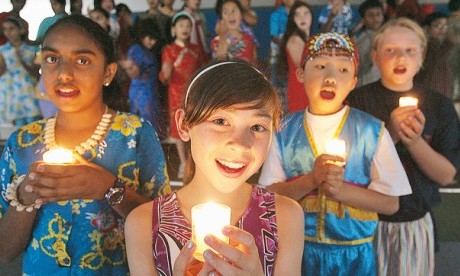For seven years, Barry Lowe’s parents refused to meet his partner, Sue Pearl.
His father had migrated to New Zealand from China in the late 30s and ran a fruit shop with Barry’s grandfather. He brought his wife and an infant Barry over from Hong Kong in the 1950s.
They rejected Sue out of fear for their grandchildren. What would Asian-Jewish-European children look like? And where would they fit in?
Sue’s Jewish grandfather had fled Europe before World War II to the corner of earth farthest from Hitler’s Germany. She understood what it meant to be different.
She liked all the things that made Barry Chinese: the language, the food and the culture.
“I had awareness of difference, so it was shocking to be road-blocked with our relationship like that. It was about cultural difference,” Sue said.
Then, one day, before the couple left for their OE, Barry’s mother told him that when they returned they would accept Sue into the family.
But with more than 10 per cent of New Zealand identifying with more than one ethnic group, the grandparents were right. Sue and Barry’s children have had to negotiate difficult issues of identity growing up in New Zealand.
Their eldest daughter, Nicky, who is “very obviously Eurasian”, has struggled with her ethnic identity.
“She has never managed to not be Chinese. She has wanted to be white, but she can’t get away from looking and feeling Chinese,” said Barry.
Nicky is engaged to the son of Taiwanese migrants.
Sue and Barry’s youngest son, Richard, has taken a very traditional Chinese girlfriend – a real surprise to his parents.
“It speaks of the era that a 21-year-old grew up in and what was his playing field at primary school and his immersion with other cultures,” Sue said. Continue reading
Sources
- Simon Day in The Dominion Post
- Image: Stuff
Simon Day is a reporter for Fairfax NZ
Additional readingNews category: Features.




